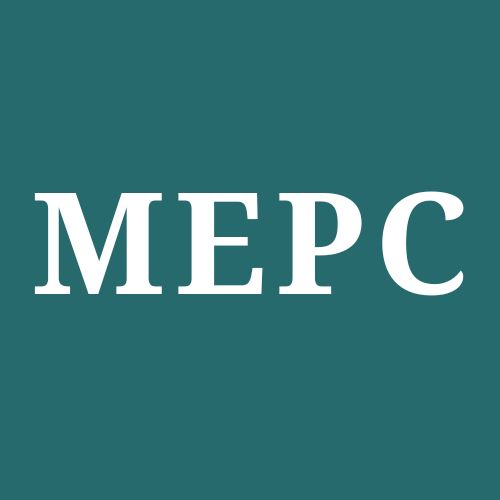Madison Qualls
Madison is a senior at Princeton University pursuing a B.A. in Near Eastern Studies with a certificate in the History and Practice of Diplomacy, and minors in Dance and Arabic. She was a part of the National Council on U.S.-Arab Relations Summer Internship Program and a Congressional Affairs Intern for the Middle East Policy Council.
Following the announcement of Saudi Vision 2030 in 2016, the Kingdom of Saudi Arabia has pursued ambitious initiatives to diversify its oil-reliant economy. These objectives require a significant amount of foreign investment and resources, which has incentivized Saudi Arabia to expand its global relationships. The kingdom’s latest endeavors in the electric vehicle (EV) sector have inspired more frequent interactions with Chile. The world’s second largest producer of lithium, a mineral essential for electric vehicles, Chile is set to be the latest country to expand its relations with Saudi Arabia as the Gulf state attempts to diversify its economy and become a world leader in technological innovation.
As countries across the globe aim to reduce their carbon emissions, the production and sale of electric vehicles has soared, creating an opportunity for Saudi Arabia to enter this growth market. According to the International Energy Agency, every one out of five cars sold in 2023 was an electric vehicle, with 14 million new EVs on the roads. Accordingly, the Saudi Public Investment Fund (PIF) has partnered with Foxconn, a Taiwanese contract manufacturer, to create Ceer, the first KSA-based automobile company to manufacture electric vehicles. In March 2024, Ceer awarded a billion-dollar contract to Modern Building Leaders to construct a manufacturing facility in Saudi Arabia; however, as of now, the only operating facilities are outside the country.
The company hopes to produce around 500,000 cars a year by 2030; to accomplish this, Saudi Arabia needs to secure a reliable and cost-efficient supply of an essential component for EVs: lithium. Electric vehicles are powered by lithium-ion batteries, which are able to maintain high voltage levels because of the element’s reactivity. However, Saudi Arabia does not possess the capabilities to extract these minerals within the country easily, so it has to outsource them abroad.
During a March 2024 interview, Saudi Minister of Industry and Mineral Resources Bandar Alkhorayef confirmed that Saudi Arabia was looking for countries to provide lithium for its EVs. Chile, China, and Australia are the world’s top lithium producers, but the former can produce lithium at a cheaper price than the other two. So far, Chile has been unable to fully capitalize off its extensive deposits; in an attempt to fix this dilemma, President Boric nationalized some of the country’s lithium industry in 2023.
The lithium market’s increasing prominence allows Chile to revitalize its industry through a new partnership with Saudi Arabia, which has traditionally been a minimal trade partner. Before 2024, the top Chilean export to Saudi Arabia was sawn wood, with a value of exports at approximately 135 million—0.13% of total national exports.
This small-scale relationship is expected to transform, given Riyadh’s need for lithium and desire to become a major competitor in the EV market. Earlier this year, Chile announced it would be re-opening an embassy in Saudi Arabia, a reflection of the countries’ strengthening relations.
Beyond Chile, the Future Investment Initiative Institute, started by Riyadh’s PIF, hosted a summit in Rio earlier this year that focused on “how investing in renewable energy, artificial intelligence, entrepreneurship, and social impact can put people, respect, and dignity at the heart of policymaking.” This summit was the first of its kind in Latin America, potentially foreshadowing a stronger relationship between Saudi Arabia and the continent more broadly. Saudi Arabia is making the plans necessary to strengthen its connections to countries in the region, first with Brazil and now Chile, to secure vital minerals such as copper, nickel, and lithium. This is a strategic decision due to Latin America’s abundance of minerals essential to making products for a cleaner energy market.
The latest step in propelling this relationship is an announcement by Minister Bandar Alkhorayef that he will be traveling to Chile in July to meet with the country’s mining minister. Although the topics of discussion have yet to be made public, it’s almost certain that lithium mining and trade will be at the forefront. Given the dominance of the electric vehicle market by the U.S. and China, Saudi Arabia’s ability to insert itself into the industry rests on the development of a secure and reliable supply chain. Their biggest obstacles will be outsourcing minerals they cannot produce locally and, subsequently, advertising to the largely untapped markets of the Middle East, Eurasia, and Africa, which accounted for 1% of global EV sales in 2023. Nevertheless, Saudi Arabia’s groundwork in strengthening its relationship with Latin America, notably Brazil and Chile, brings it one step closer to becoming a major competitor in the EV market.
